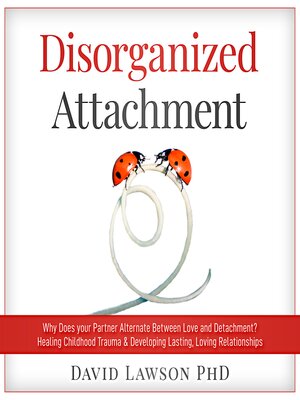Disorganized Attachment
audiobook (Unabridged) ∣ Why does your partner alternate between love and detachment? Healing Childhood Trauma & Developing Lasting, Loving Relationships
By David Lawson PhD

Sign up to save your library
With an OverDrive account, you can save your favorite libraries for at-a-glance information about availability. Find out more about OverDrive accounts.
Find this title in Libby, the library reading app by OverDrive.



Search for a digital library with this title
Title found at these libraries:
| Loading... |
Do you find it difficult to maintain a successful romantic relationship?
Does your partner exhibit contradictory behaviours in intimate relationships, stating such things as: "I hate you, don't leave me"? Statements that alternate between stickiness and detachment?
Do you nobly strive to grow the relationship, but have been stuck in the same spot for months or years?
Attachment styles are the way we connect with other people. They are generally developed by infants and further refined by children, adolescents, and adults.
People who exhibit attachment disorganisation swing from two biological drives whenever the opportunity to attack in life presents itself: the need to belong (to love and connect with others) and the need to survive (to protect themselves).
I recommend that you read this book if your partner appears to:
Fortunately, with the right information, it is possible to unlearn bad attachment habits and over time, acquire the skills and reassurance, support and continued safe, positive and trusting relationships that truly help to heal the trauma.
Understanding the wounds of attachment is the best gift you can give to your relationship to finally make your intimacy grow.






